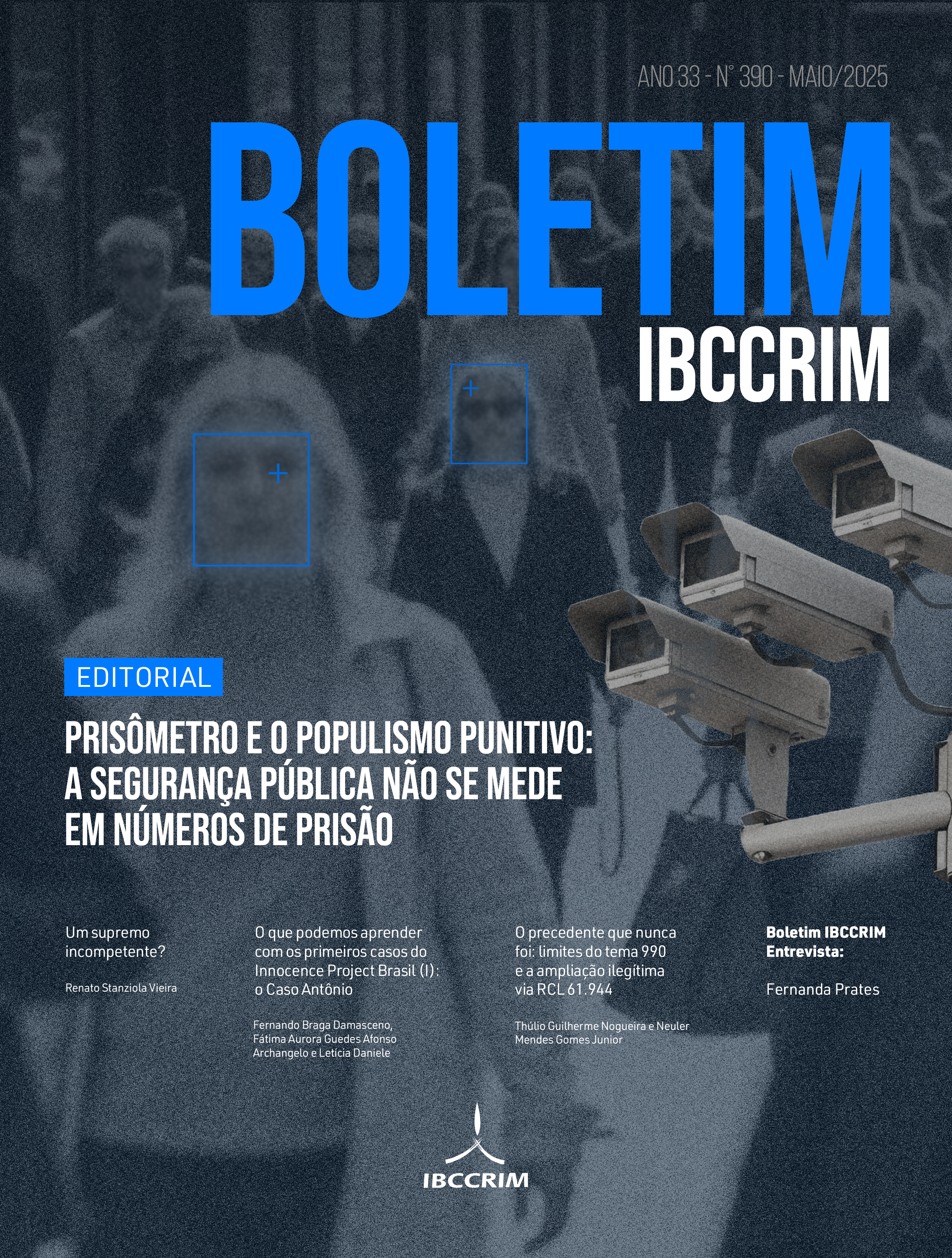IBCCRIM Bulletin Interview: Fernanda Prates
Views: 22DOI:
https://doi.org/10.5281/zenodo.15170352Keywords:
Wrongful Convictions, Judicial Errors, Criminal Justice, Criminal Policy, Innocence, Innocence Project Brazil, LAPEJ; Judicial Reform; Empirical Research, LAPEJAbstract
This interview with Fernanda Prates, professor at FGV Rio and coordinator of IBCCRIM's "Wrongful Convictions" Working Group, addresses the challenges and systemic nature of wrongful convictions in Brazil's criminal justice system. Prates defines wrongful convictions, highlights their multifactorial causes, and stresses the lack of empirical data in the country. She details two new initiatives launched by IBCCRIM in 2025: a national working group dedicated to identifying preventive practices and conducting jurisprudential research, and a bimonthly section in the IBCCRIM Bulletin focused on judicial errors. The discussion underscores the need for contextualized research and institutional collaboration to prevent the conviction of innocent individuals.
Downloads
References
NATIONAL REGISTRY OF EXONERATIONS. About the Registry. Disponível em: https://www.law.umich.edu/special/exoneration/Pages/about.aspx. Acesso em: 3 abr. 2025.
INNOCENCE PROJECT BRASIL. Innocence Project Brasil. Disponível em: https://www.innocenceprojectbrasil.org. Acesso em: 3 abr. 2025.
LAPEJ – LABORATÓRIO DE PREVENÇÃO DE ERROS JUDICIÁRIOS. Escola Nacional de Formação e Aperfeiçoamento de Magistrados (ENFAM). Disponível em: https://www.enfam.jus.br (ou outra URL se houver uma específica para o LAPEJ). Acesso em: 3 abr. 2025.
Downloads
Published
How to Cite
Issue
Section
License
Copyright (c) 2025 Instituto Brasileiro de Ciências Criminais

This work is licensed under a Creative Commons Attribution-NonCommercial 4.0 International License.
Copyright of published articles belongs to the author, but with journal rights over the first publication and respecting the one-year exclusivity period. Authors may only use the same results in other publications by clearly indicating this journal as the medium of the original publication. If there is no such indication, it will be considered a situation of self-plagiarism.
Therefore, the reproduction, total or partial, of the articles published here is subject to the express mention of the origin of its publication in this journal, citing the volume and number of this publication. For legal purposes, the source of the original publication must be consigned, in addition to the DOI link for cross-reference (if any).

 Português (Brasil)
Português (Brasil)
 English
English
 Español (España)
Español (España)










